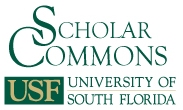Keywords
quantitative literacy, curriculum, philosophy
Abstract
In this essay, I examine the extent to which mathematics education and education for quantitative literacy support students’ present and future flourishing, a concept that entails realizing objective goods in a life lived from the inside. This perspective requires disentangling philosophical assumptions about the aims of mathematics education, which—in the context of flourishing—I take to be a hybrid of those that have informed curricular discussions over the past two centuries. In the process, I problematize ("make strange") many of the common reasons given for students learning mathematics, including: learning it for one’s career, for one’s logical reasoning skills, or for its own sake. My conclusion is that, through the end of compulsory schooling, all students should take coursework that fosters quantitative literacy, or the ability and disposition to use, interpret, and criticize numbers as they manifest in daily life. In addition, in the same environment, traditional mathematics should be included and compulsory up to grade eight, but afterward required only insofar as it is necessary for fulfilling one’s goals. I pursue this line of argument with full cognizance of sociopolitical elements of mathematics education and other challenges in implementation, noting that appealing to consequences—while fine as a justification for avoiding change in the short-term—is not a tenable justification for doing so in the long-term. I challenge readers to reflect on our ability to empower students for future flourishing, and to consider the role that mathematics has in doing so.
DOI
http://dx.doi.org/10.5038/1936-4660.10.1.7
Recommended Citation
Tunstall, Samuel L.. "Quantitative Literacy for the Future Flourishing of our Students: A Guiding Aim for Mathematics Education." Numeracy 10, Iss. 1 (2017): Article 7. DOI: http://dx.doi.org/10.5038/1936-4660.10.1.7
Creative Commons License

This work is licensed under a Creative Commons Attribution-Noncommercial 4.0 License
Included in
Curriculum and Instruction Commons, Metaphysics Commons, Science and Mathematics Education Commons

